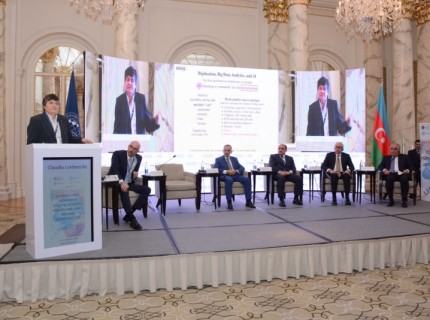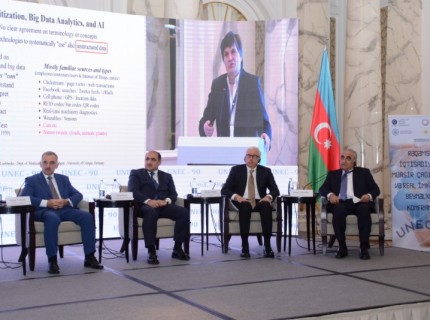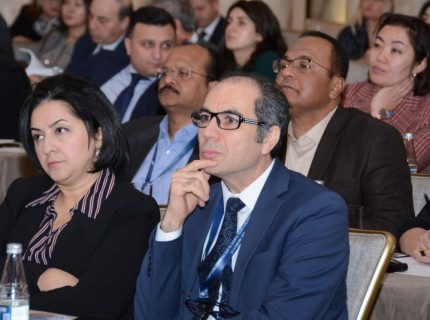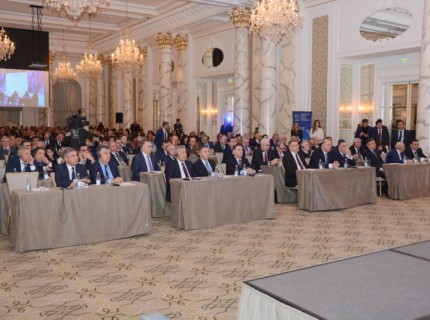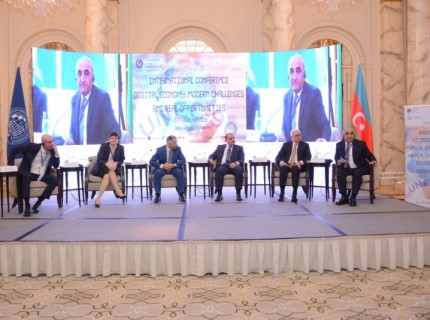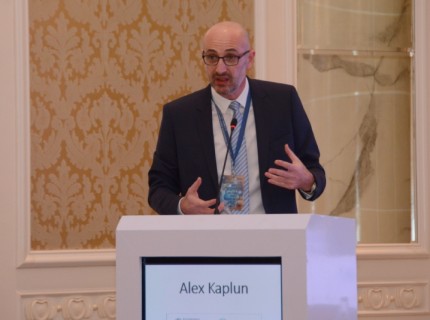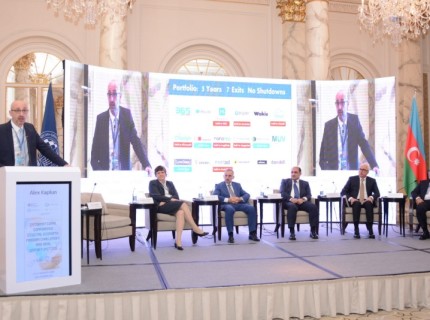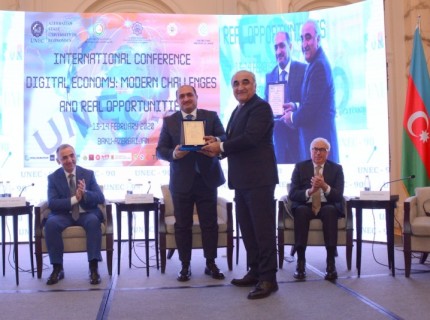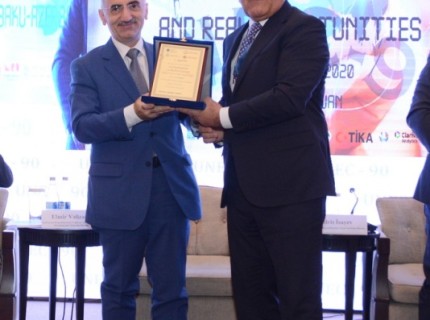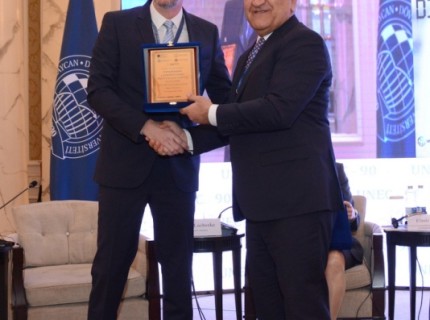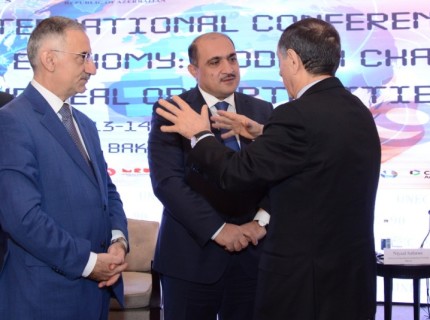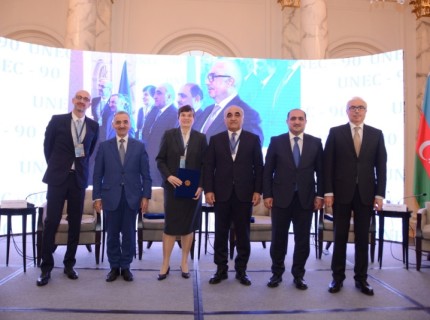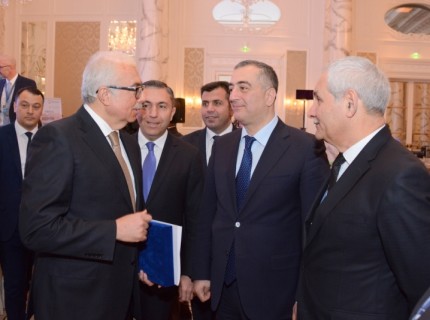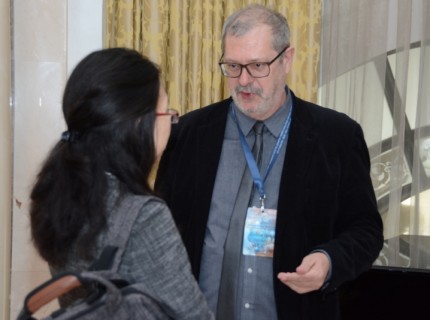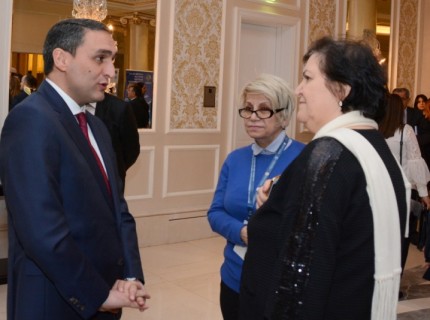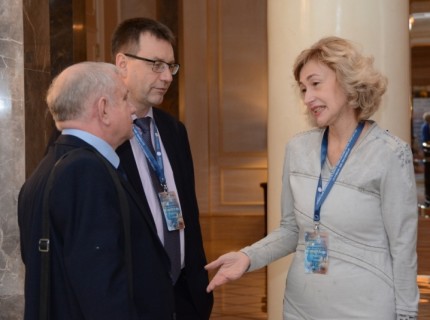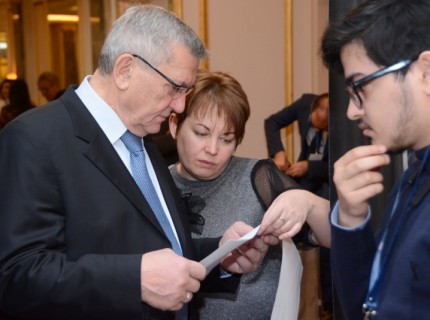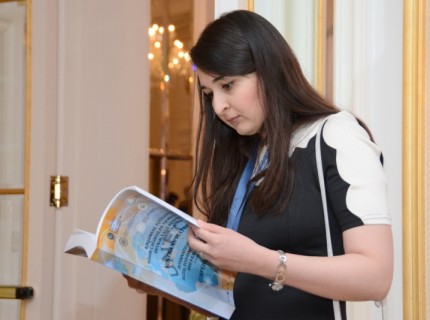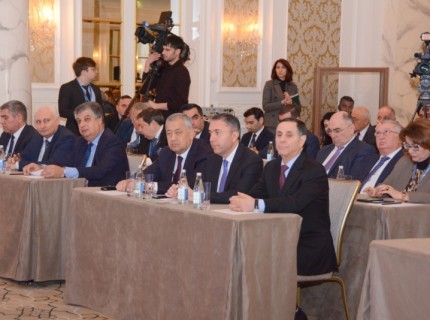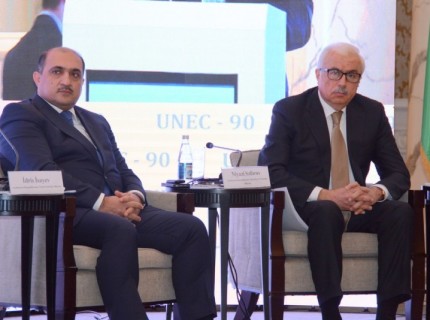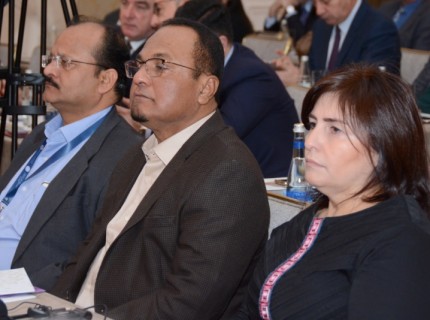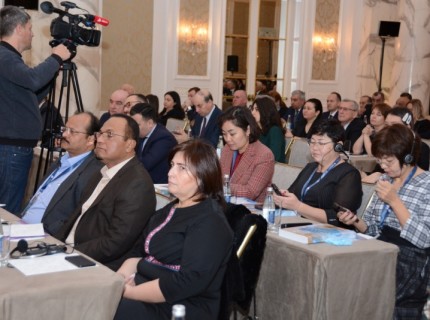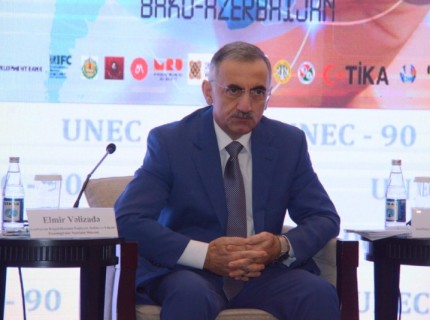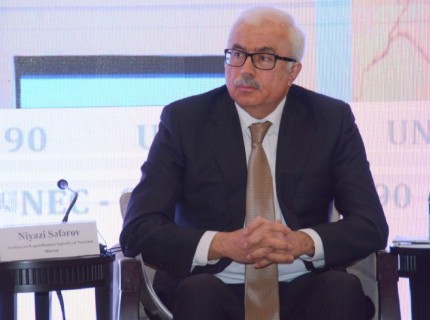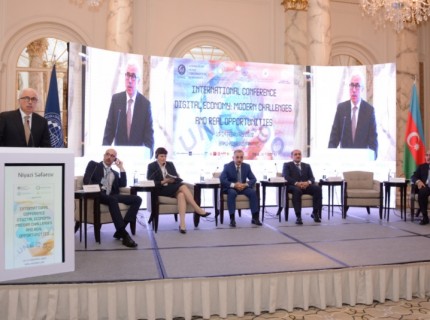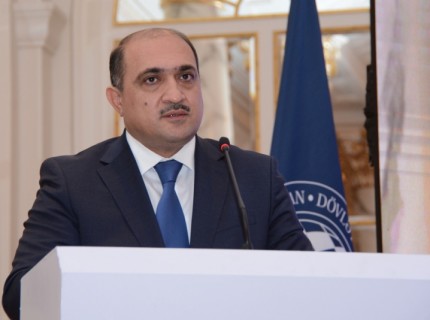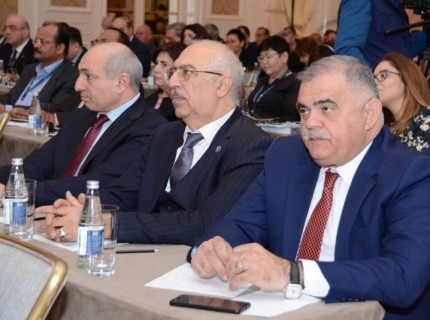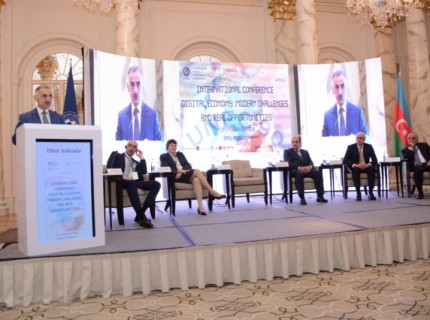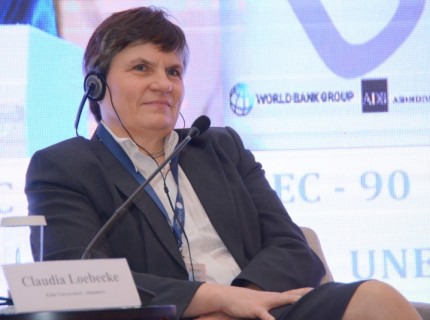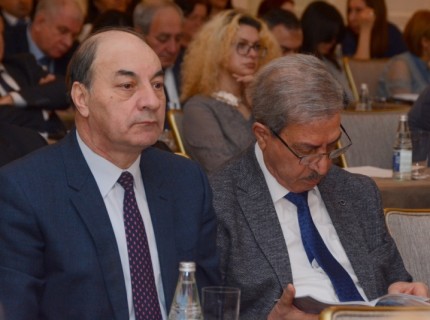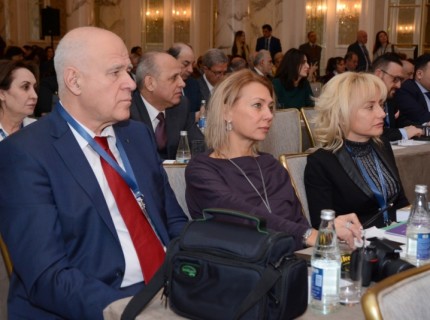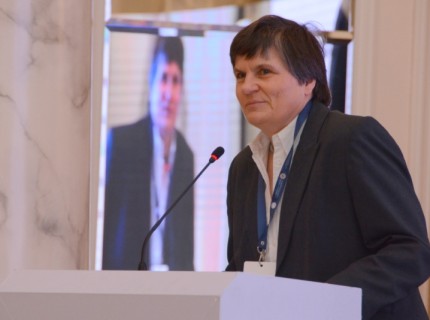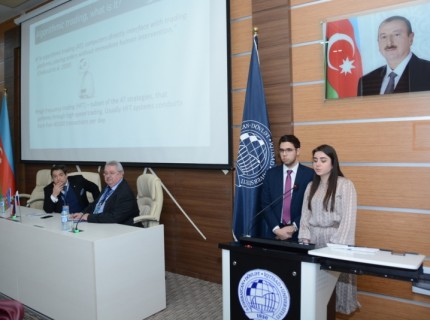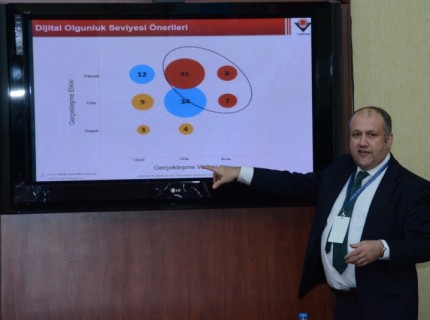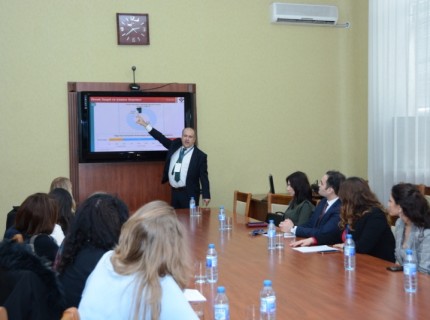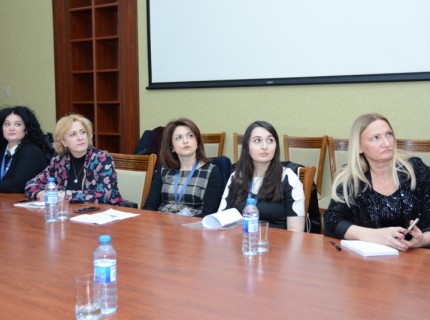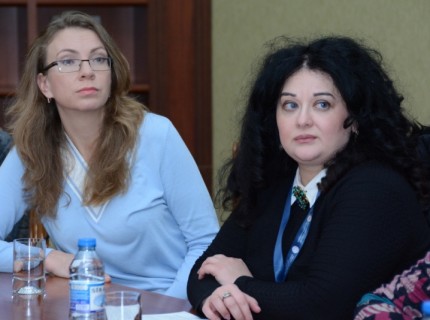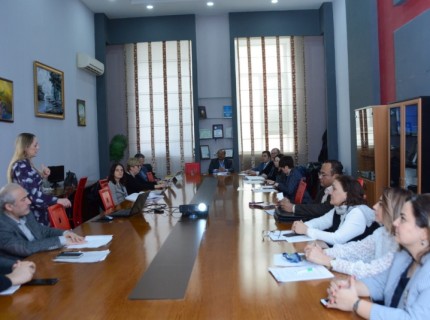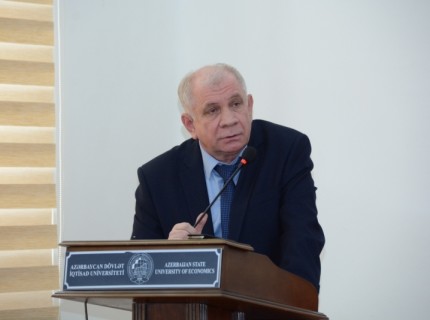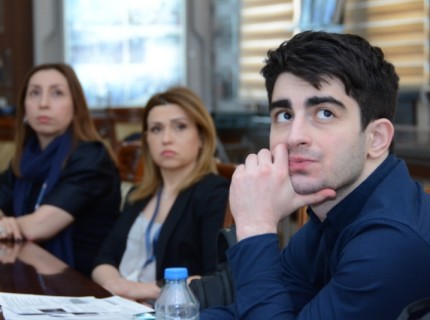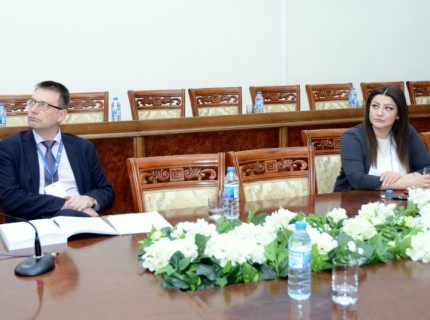International Conference is held on “Digital Economy: Modern Challenges and Real Opportunities”
A two-day international conference on “Digital Economy: Modern Challenges and Real Opportunities” started in Baku organized by Azerbaijan State University of Economics (UNEC) and the Ministry of Economy of the Republic of Azerbaijan, with the support of the Ministry of Education, Ministry of Transport, Communications and High Technologies and the China Alliance of Science and Technology “One belt, one road”.
The opening of the conference took place at Four Seasons Hotel. The event was attended by deputy minister of Economy of the Republic of Azerbaijan Niyazi Safarov, deputy minister of Education Idris Isayev, deputy minister of Communications and High Technologies Elmir Velizadeh, UNEC Rector, Professor Adalat Muradov, conference organizers, rectors of local and foreign universities cooperated with UNEC, heads and representatives of partner organizations, well-known academicians, and scientists.
Rector Adalat Muradov welcomed the participants and explained the purpose of the conference. He said that taking into account the serious successes and the well-established framework that has been achieved as a result of the successful policy of President of the Republic of Azerbaijan Mr. Ilham Aliyev, digital transformation is the most important tool for ensuring a more sustainable, innovative and competitive economic development of our country in the future. To discuss different aspects of the digital economy and to keep this issue on the agenda, it was decided to organize an international conference in partnership with 15 international and foreign organizations.
Referring to the fact that digitalization requires new competencies in the labor market, the rector stressed that it has a significant impact on the education system as a whole, as well as agriculture, transport and finance. A.Muradov stressed the need for staff -training in the digital economy at all levels of education, the need for digitalization of the economy to change, and the need to establish a mechanism for statistical measurement of processes related to the digital economy while international standards have not yet been formulated. The rector also said that the preparation of the State Program “Digital Azerbaijan” would be useful.
Deputy Minister of Education Idris Isayev said that taking into consideration of the development tendencies and trends, special attention has been paid to training in technical and technological specialties. He said that this year, there was a 4.3 percent increase in the technical and technological specialty group focused on innovation, and a 71 percent increase in student enrollment plans based on government orders on technical and technological specialty group. The Deputy Minister also noted that in recent years the international relations of Azerbaijani universities with leading universities of the world have significantly increased. He noted that at present there are 11 internationally accredited educational programs applied in our universities, implementation of training on dual diploma programs of 10 universities of our country in 25 specialties and specialization with 20 universities of the world and 7 of them are related only with technical and technological specialties.
Deputy Minister of Economy Niyazi Safarov spoke about the work carried out in the direction of development of digital economy in Azerbaijan. The deputy minister said that e-government was created in this direction, 68 services were digitized in various directions and the transformation of traditional economy into digital economy was implemented. The official said that the licenses and permits portal has been launched in Azerbaijan and more than 1,500 licenses have been issued through the platform so far.
Elmir Velizadeh, deputy minister of Transport, Communications and High Technology, spoke about the factors that influence the development of the digital economy. The Deputy Minister said that modernization of infrastructure, introduction of modern technologies, increasing number of internet users and expanding e-commerce were key factors in this direction. He said Azerbaijan’s 3G network is ahead of the world average, and now 4G network is being expanded. E,Valizadeh noted that according to the Global Competitiveness Report published in 2019 by the World Economic Forum, Azerbaijan ranked 43rd out of 141 countries for the number of Internet users per 100 people and he noted that our country is the second country in the region for this indicator.
Plenary reports were also heard during the opening ceremony of the conference. Professor Claudia Loebbecke, Director of the Department of Media and Technology Management at the University of Cologne, Germany, made a presentation on “How digitalism, analytics, and artificial intelligence can transform business and society.”
The presentation of the chairman of the Azerbaijani-Israeli Chamber of Commerce Alex Kaplu was on the topic “Vision of venture capital investors in the evolution of digitalization”. The Chamber Chairman said there are great opportunities for investing in venture capital in Azerbaijan. He noted that the process is accelerating in countries such as Estonia, Ukraine and Belarus and it is advisable to create these opportunities, taking nto account digitization of the economy in Azerbaijan.
The conference continued its work at UNEC in four subdivision sessions. The discussions focused on the digital transformation of public administration, the regional vision of digital co-operation, the digitization of the financial sector, the digital transformation of social and education sectors, and the use of digitalization in all sectors of the economy and its reflection on education.
Within the framework of the conference, agreement was signed between UNEC and Fund of “Economic Policy Institute named after E.T.Qaydar” on scientific cooperation.
Local and foreign scientists will make speeches on the topics “Digital economy, risks and solutions in Azerbaijan”, “Silk Road digitalization opportunities”, “Risks and benefits of digital currencies and e-commerce”, “The role of human capital in the digital economy”, “Development of digital economy and new business models”; “Smart cities” in international practice ” and other topics, discussions will be made on the second day of the international conference. The event will also feature panel presentations by IT companies. By the way, it should be noted that Bakcell mobile operator is the sponsor of the international conference.
The conference will focus on the transformation of Azerbaijan’s Digital Commerce Cross into the Digital Silk Road, as well as the unified electronic space in Europe. These discussions will reveal the potential for digital transactions across Azerbaijan and the development of international trade in the region. At the same time, it will contribute to the development of the concept of “digital economy” and government programs in our country, and will facilitate its integration into the digital economy of the region.
It should be noted that the main purpose of the International Conference is to study the current state of the digital economy and the factors that are necessary for its development, to discuss and forecast future prospects, and the sharing of advanced knowledge in the field of digital governance.
